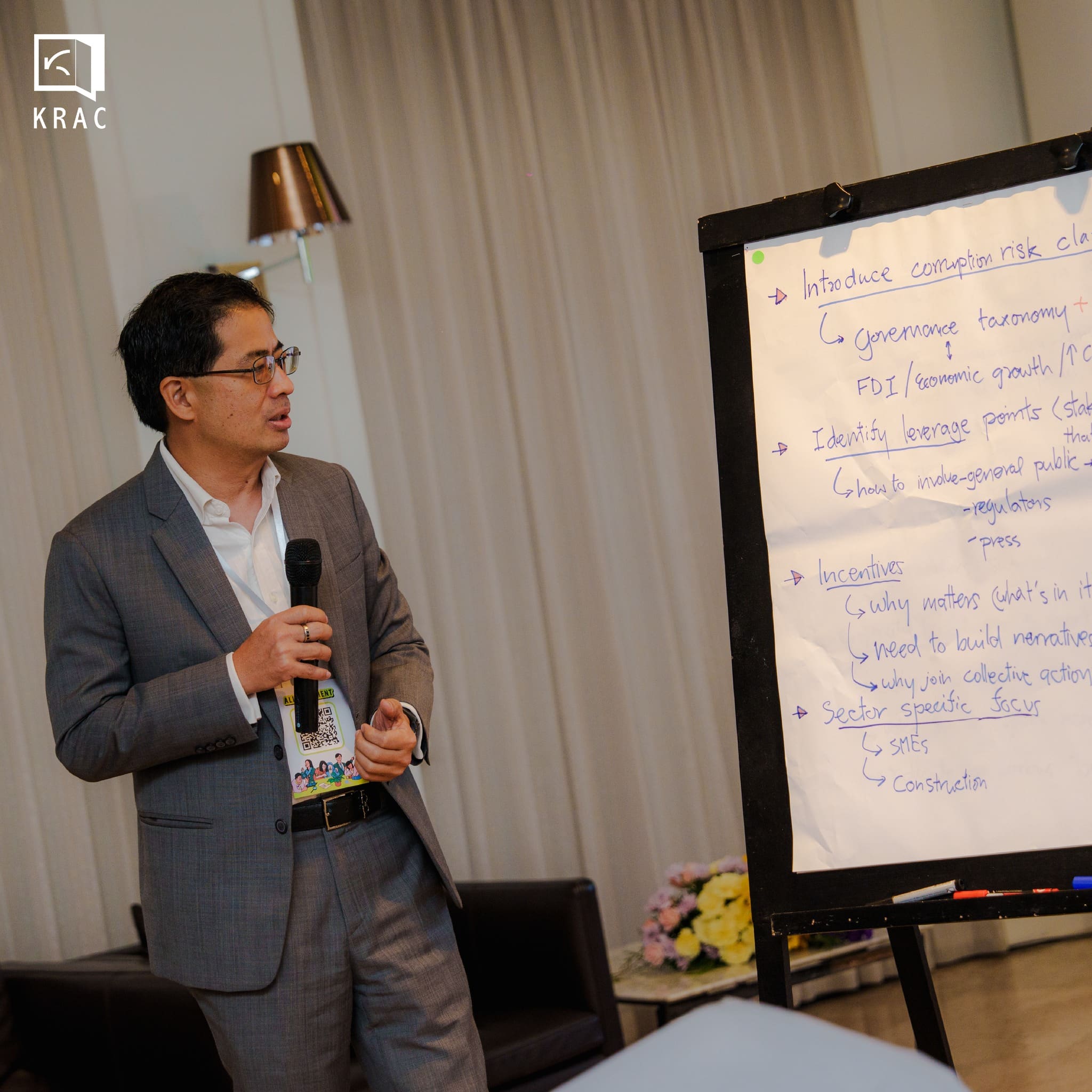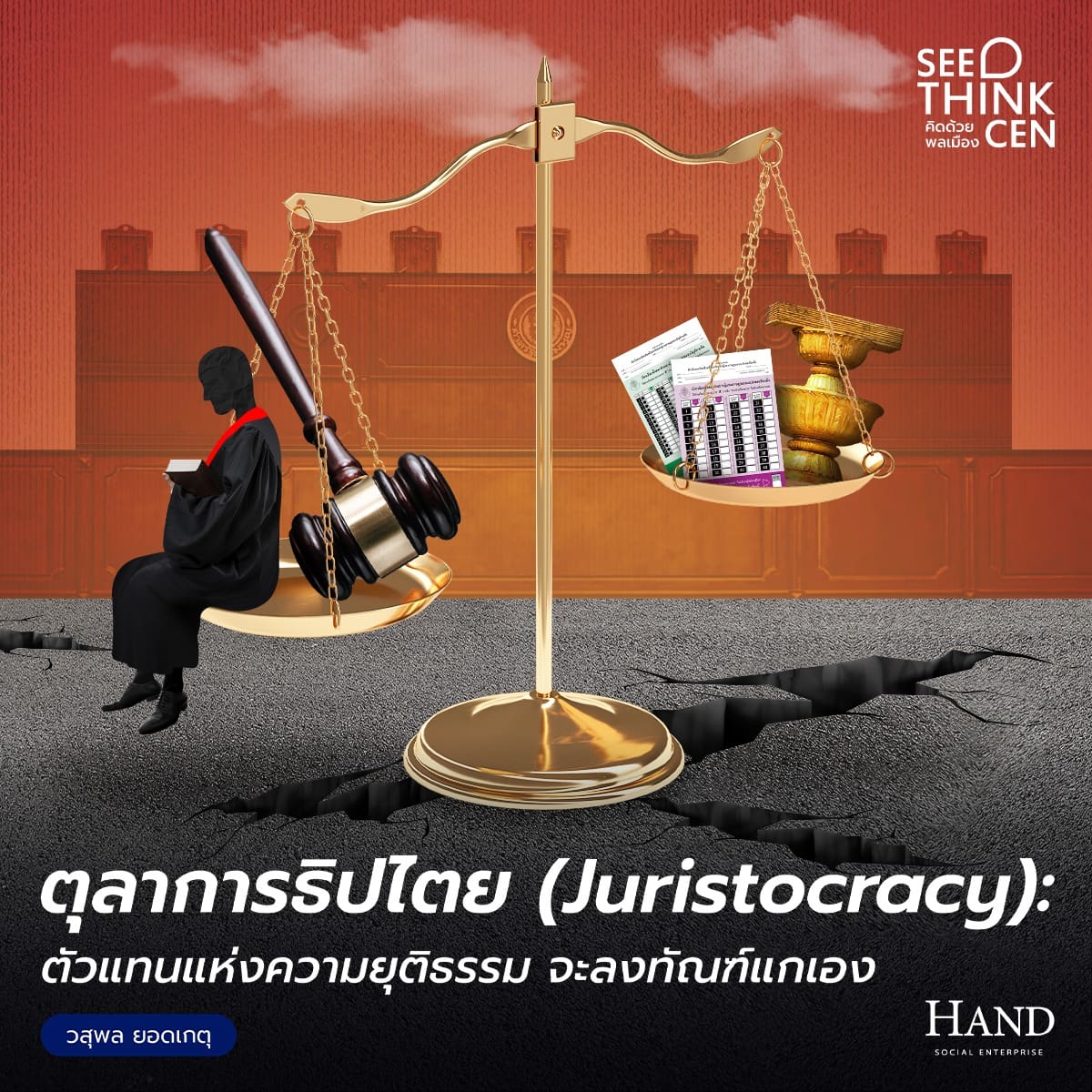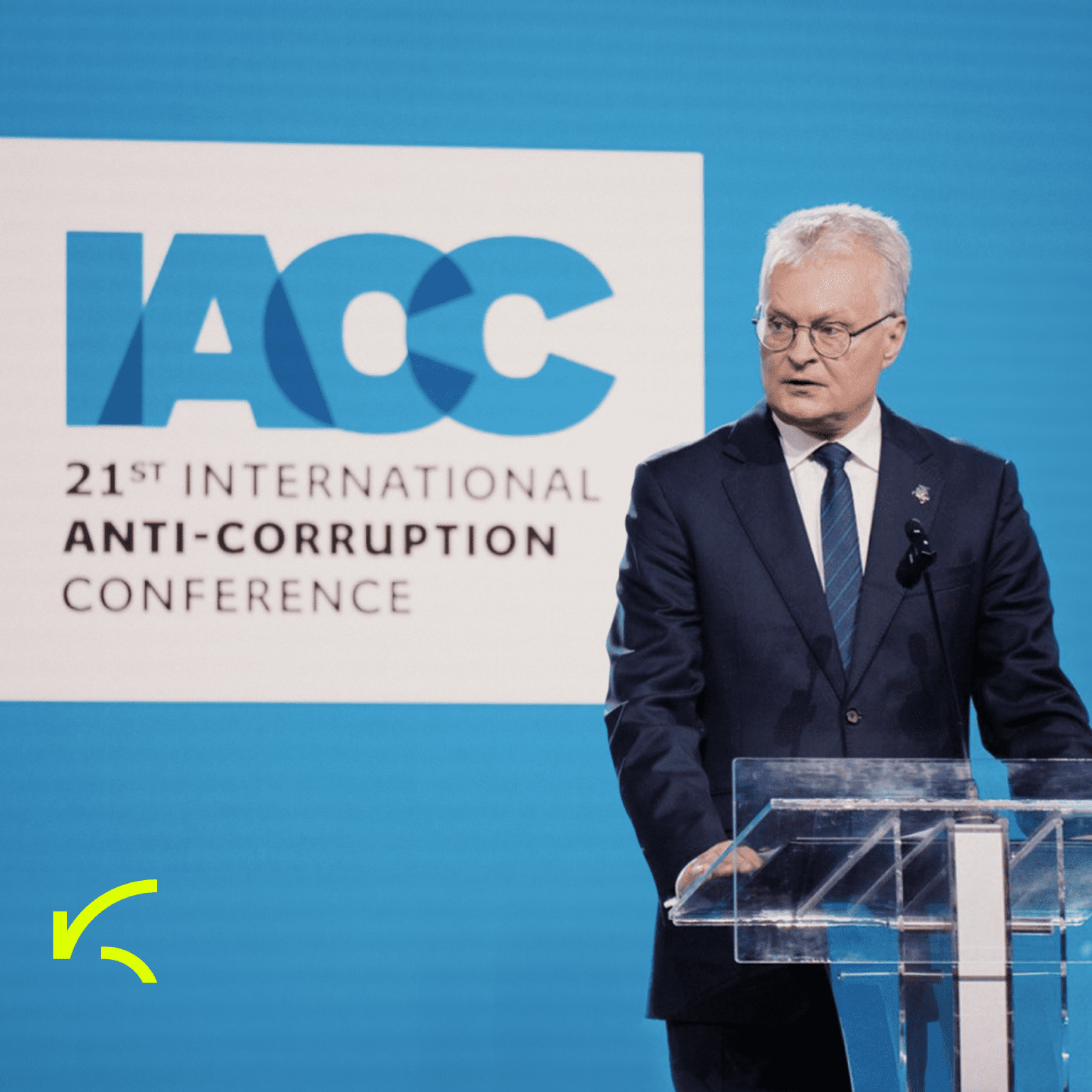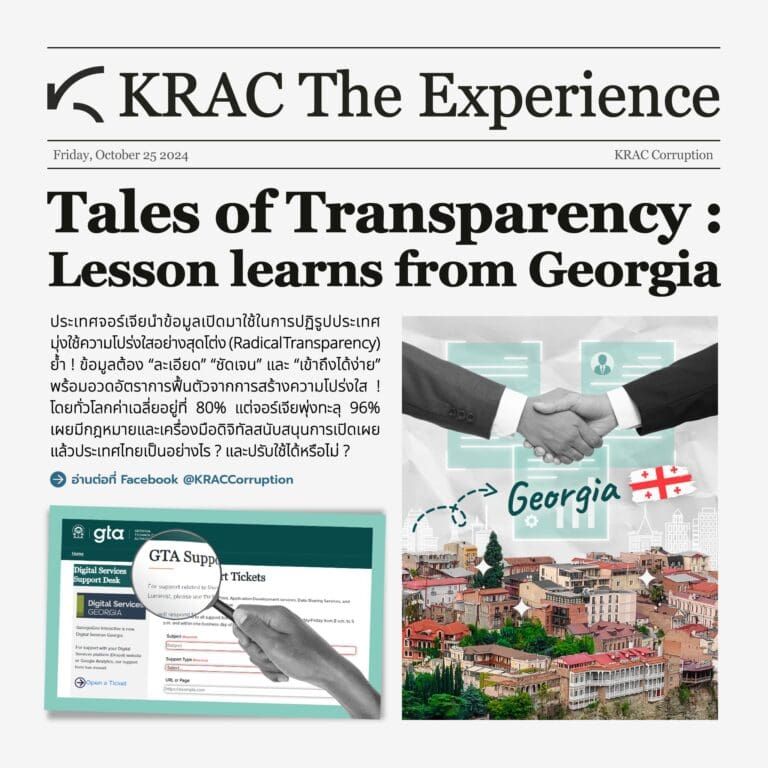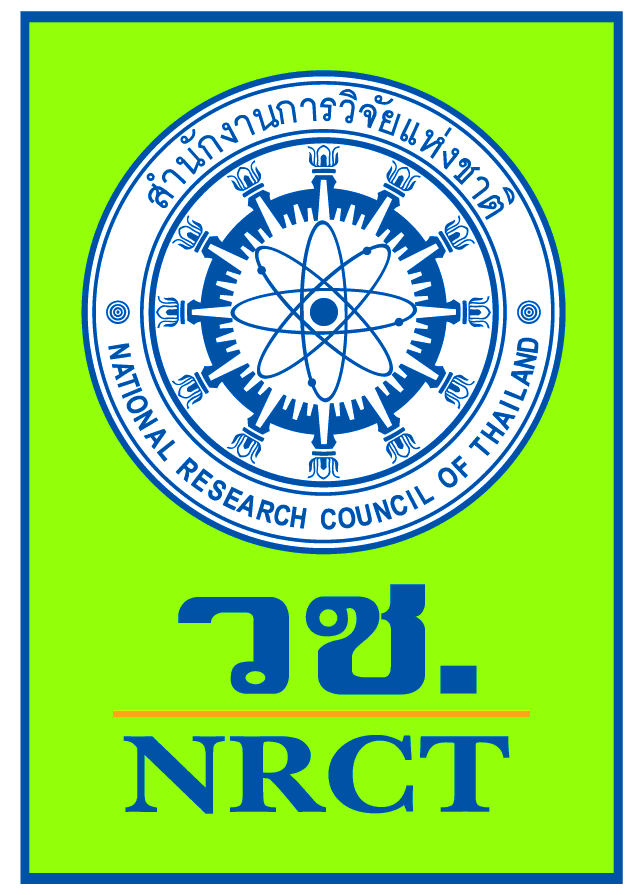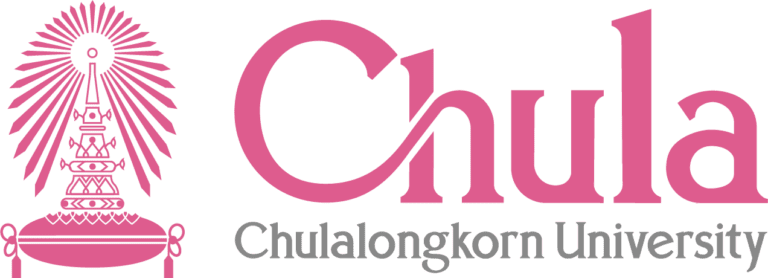Did You Know “Corporate Governance” Can Help Develop the Private Sector? Here’s How from the “Southeast Asian Anti-Corruption Network (SEA-ACN) Roundtable Discussion”
This event was organized by Knowledge Hub for Regional Anti-corruption and Good Governance Collaboration” (KRAC), Faculty of Economics, Chulalongkorn University supported by the National Research Council of Thailand (NRCT) in collaboration with the United Nations Office on Drugs and Crime (UNODC), The Chandler Institute of Good Governance, and the U.S. Embassy in Thailand.
At the roundtable, experts and representatives from eight organizations discussed the topic of “Business Integrity,” focusing on encouraging private sector companies to adopt corporate governance practices:
1.Anti-Corruption Organization of Thailand (ACT)
2.Premier Group of Companies
3.International Collective Action Network (I-CAN Fight Corruption)
4.Office of the National Anti-Corruption Commission (NACC)
5.Tempo Magazine
7.Transparency International Malaysia
From the discussion, the participants presented the topic “Principles of Anti-Corruption and Promotion of Good Governance in the Private Sector” to encourage the private sector to conduct business. and compete fairly Having good corporate governance in the organization will help investors have more trust and invest in the business.
This is to support the fight against corruption. And implementing corporate governance in the private sector requires creating a network of cooperation between the private sector and civil society. to put pressure on regional governments to pass laws and enforcing relevant laws more stringently, such as enacting anti-bribery laws. and support for anti-corruption guidelines that can be put into practice.
In addition, a central anti-corruption platform should be created for the private sector. To strengthen participation of private sector organizations by offering the platform a channel for reporting corruption. Providing legal knowledge to investors Developing skills, knowledge and abilities and promoting doing business in the region Including enhancing the responsibility of the private sector through developing and promoting the use of various standard assessments such as Corruption Risk Classification and Dow Jones Sustainability Indices (DJSI) assessments. Sustainable Organization Development Standards (Environmental, Social and Governance: ESG) etc.
However, creating a coalition from the private sector requires incentives such as financial or tax measures for companies with good corporate governance. and pointed out the importance of coming together to form a network that It will be a tool that gives the private sector more power to negotiate with the government sector. It will also attract the private sector to participate in the entire process efficiently.
The discussion highlighted that the private sector can play a crucial role in anti-corruption efforts and development. Their participation can lead to stronger anti-corruption laws and effective law enforcement at an international level, enhancing the overall efficiency and impact of anti-corruption initiatives in the region.
This was the final topic from the roundtable discussion, but KRAC will continue to share knowledge on anti-corruption efforts!



